By: Plato (427-347) |
|---|
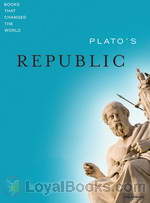 Plato's Republic
Plato's Republic
Plato's Republic is a Socratic dialogue which deals mainly with the definition of justice, the characteristics of a just city state and the just man. Although it was written more than two thousand years ago, many of the ideas and thoughts expounded here are still very much relevant to modern society.
This is Plato's best known work and is also considered his most influential especially when it comes to the fields of philosophy and political theory. The Republic is divided into ten books and in each book Socrates discusses different topics from the immortality of the soul to the meaning of justice with his disciples like Glaucon, Thrasymachus, Adeimantus and others...
|
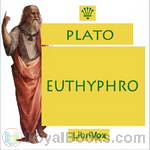 Euthyphro
Euthyphro
Awaiting his trial on charges of impiety and heresy, Socrates encounters Euthyphro, a self-proclaimed authority on matters of piety and the will of the gods. Socrates, desiring instruction in these matters, converses with Euthyphro, but as usual, the man who professes to know nothing fares better than the man who claims to be an expert. One of Plato’s well-known Socratic Dialogues, Euthyphro probes the nature of piety, and notably poses the so-called Euthyphro Dilemma: Do the gods love a thing because it is holy, or is a thing holy because it is loved by the gods?
|
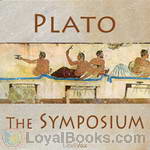 The Symposium
The Symposium
The Symposium (Ancient Greek: Συμπόσιον) is a philosophical book written by Plato sometime after 385 BCE. On one level the book deals with the genealogy, nature and purpose of love, on another level the book deals with the topic of knowledge, specifically how does one know what one knows. The topic of love is taken up in the form of a group of speeches, given by a group of men at a symposium or a wine drinking party at the house of the tragedian Agathon at Athens. Plato constructed the Symposium as a story within a story within a story...
|
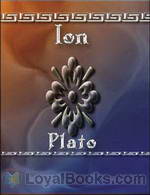 Ion
Ion
In Plato’s Ion, Socrates questions Ion on whether he should really claim laud and glory for his ‘rhapsodic’ recitals of Homer’s poetry.
|
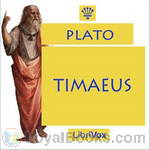 Timaeus
Timaeus
“Our intention is, that Timaeus, who is the most of an astronomer amongst us, and has made the nature of the universe his special study, should speak first, beginning with the generation of the world and going down to the creation of man…” ‘Timaeus’ is usually regarded as one of Plato’s later dialogues, and provides an account of the creation of the universe, with physical, metaphysical and ethical dimensions, which had great influence over philosophers for centuries following. It attributes the order and beauty of the universe to a benevolent demiurge – a ‘craftsman’ or god – fashioning the physical world after the pattern of an ideal, eternal one...
|
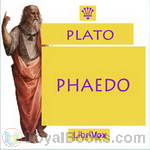 Phaedo
Phaedo
Plato's Phaedo is one of the great dialogues of his middle period, along with the Republic and the Symposium. The Phaedo, which depicts the death of Socrates, is also Plato's seventh and last dialogue to detail the philosopher's final days (the first six being Theaetetus, Euthyphro, Sophist, Statesman, Apology, and Crito).In the dialogue, Socrates discusses the nature of the afterlife on his last day before being executed by drinking hemlock. Socrates has been imprisoned and sentenced to death by an Athenian jury for not believing in the gods of the state and for corrupting the youth of the city...
|
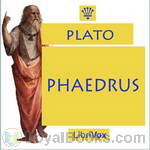 Phaedrus
Phaedrus
“For there is no light of justice or temperance, or any of the higher ideas which are precious to souls, in the earthly copies of them: they are seen through a glass, dimly…”Socrates and his earnest friend Phaedrus, enjoying the Athenian equivalent of a lunchtime stroll in the park, exchange views on love and on the power of words, spoken and written.Phaedrus is the most enchanting of Plato’s Erotic dialogues (capitalised in honour of the god). The barefoot philosopher urges an eager young...
|
 Apology
Apology
The Apology of Socrates is Plato's version of the speech given by Socrates as he unsuccessfully defended himself in 399 BC against the charges of "corrupting the young, and by not believing in the gods in whom the city believes, but in other daimonia that are novel" (24b). "Apology" here has its earlier meaning (now usually expressed by the word "apologia") of speaking in defense of a cause or of one's beliefs or actions (from the Ancient Greek ἀπολογία).
|
 Meno
Meno
Meno (Ancient Greek: Μένων) is a Socratic dialogue written by Plato. Written in the Socratic dialectic style, it attempts to determine the definition of virtue, or arete, meaning in this case virtue in general, rather than particular virtues, such as justice or temperance. The goal is a common definition that applies equally to all particular virtues. Socrates moves the discussion past the philosophical confusion, or aporia, created by Meno's paradox (aka the learner's paradox) with the introduction of new Platonic ideas: the theory of knowledge as recollection, anamnesis, and in the final lines a movement towards Platonic idealism.. (Introduction by Wikipedia)
|
 Laws
Laws
Νόμοι (Laws) is Plato's final dialogue written after his attempt to advise the tyrant Dionysius II of Syracuse. The dialogue takes place between: an Athenian Stranger (Socrates? A god in human form?); the quiet Lacedaemonian Megillus; and the Cretan Cleinias. The Stranger asks whether humans live to be more effective at waging war or if there is something more important a legislator should seek to achieve. During their pilgrimage Cleinias discloses his role in the establishment of a new colony...
|
 Bilingualism Address delivered before the Quebec Canadian Club, at Quebec, Tuesday, March 28th, 1916
Bilingualism Address delivered before the Quebec Canadian Club, at Quebec, Tuesday, March 28th, 1916
 The Renascence of Hebrew Literature (1743-1885)
The Renascence of Hebrew Literature (1743-1885)
 Unwritten Literature of Hawaii The Sacred Songs of the Hula
Unwritten Literature of Hawaii The Sacred Songs of the Hula
 Dead Souls
Dead Souls
 Theocritus Bion and Moschus Rendered into English Prose
Theocritus Bion and Moschus Rendered into English Prose
 Works of Lucian of Samosata — Volume 01
Works of Lucian of Samosata — Volume 01
 The Book of Tea
The Book of Tea
 A Spelling-Book for Advanced Classes
A Spelling-Book for Advanced Classes
 Ontario Teachers' Manuals: Literature
Ontario Teachers' Manuals: Literature
 A Manual of Pronunciation For Practical Use in Schools and Families
A Manual of Pronunciation For Practical Use in Schools and Families
 The Life of St. Declan of Ardmore
The Life of St. Declan of Ardmore
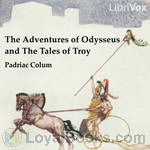 The Adventures of Odysseus and the Tale of Troy
The Adventures of Odysseus and the Tale of Troy
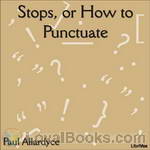 Stops, or How To Punctuate
Stops, or How To Punctuate
 The Principles of English Versification
The Principles of English Versification
 English as she is spoke or, A jest in sober earnest
English as she is spoke or, A jest in sober earnest
 The Comic Latin Grammar A new and facetious introduction to the Latin tongue
The Comic Latin Grammar A new and facetious introduction to the Latin tongue
 Roget's Thesaurus
Roget's Thesaurus
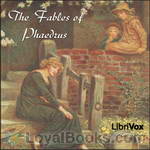 The Fables of Phaedrus
The Fables of Phaedrus
 Plato's Republic
Plato's Republic
 Euthyphro
Euthyphro
 The Symposium
The Symposium
 Ion
Ion
 Timaeus
Timaeus
 Phaedo
Phaedo
 Phaedrus
Phaedrus
 Apology
Apology
 Meno
Meno
 Laws
Laws
 Procopius History of the Wars, Books V. and VI.
Procopius History of the Wars, Books V. and VI.
 History of the Wars, Books I and II The Persian War
History of the Wars, Books I and II The Persian War
 History of the Wars, Books III and IV The Vandalic War
History of the Wars, Books III and IV The Vandalic War
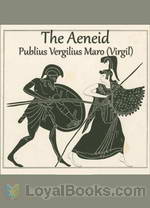 The Aeneid
The Aeneid